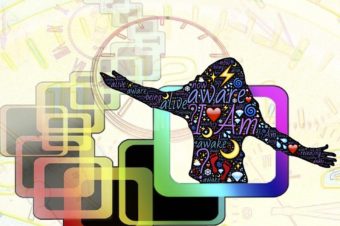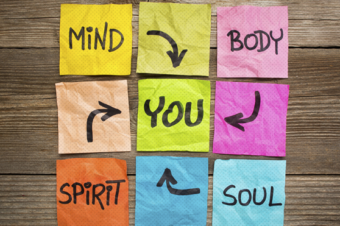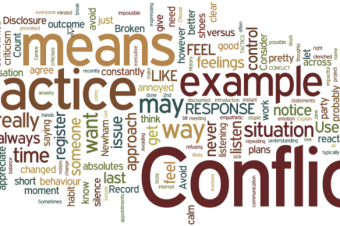 Which one are you feeding this old indian legend now as a neurological answer. The Cherokee legend goes, a young Indian boy received a beautiful drum as a gift. When his best friend saw it, he asked if he could play with it, but the boy felt torn. He didn’t want to share his new present, so he angrily told his friend, “No!” His friend ran away, and the boy sat down on a rock by the stream to contemplate his dilemma. He hated the fact that he had hurt his friend’s feelings, but the drum was too precious to share. In his quandary, he went to his grandfather for advice. The elder listened quietly and then replied. “I often feel as though there are two wolves fighting inside me. One is mean and greedy and full of arrogance and pride, but the other is peaceful and generous. All the time they are struggling, and you, my boy, have those same two wolves inside of you.” “Which one will win?” asked the boy. The elder smiled and said, “The one you feed.”
Which one are you feeding this old indian legend now as a neurological answer. The Cherokee legend goes, a young Indian boy received a beautiful drum as a gift. When his best friend saw it, he asked if he could play with it, but the boy felt torn. He didn’t want to share his new present, so he angrily told his friend, “No!” His friend ran away, and the boy sat down on a rock by the stream to contemplate his dilemma. He hated the fact that he had hurt his friend’s feelings, but the drum was too precious to share. In his quandary, he went to his grandfather for advice. The elder listened quietly and then replied. “I often feel as though there are two wolves fighting inside me. One is mean and greedy and full of arrogance and pride, but the other is peaceful and generous. All the time they are struggling, and you, my boy, have those same two wolves inside of you.” “Which one will win?” asked the boy. The elder smiled and said, “The one you feed.”
We all harbor a pack of neurological wolves in our brain. The old ones reside in the limbic system, and they are filled with aggression and fear. They’re fast, efficient, and potentially  deadly, and they’ve been running the show for 150 million years. The younger ones reside in our frontal lobes and anterior cingulate, where empathy, reason, logic, and compassion reside. These pups are playful and imaginative, but they are also neurologically vulnerable and slow when compared to the activity in the emotional parts of the brain.
deadly, and they’ve been running the show for 150 million years. The younger ones reside in our frontal lobes and anterior cingulate, where empathy, reason, logic, and compassion reside. These pups are playful and imaginative, but they are also neurologically vulnerable and slow when compared to the activity in the emotional parts of the brain.
So, when it comes to making sophisticated moral decisions, which one will win? The selfish brain or the cooperative one? Again, as with the two wolves, it depends on the one you feed. If you allow anger and fear to dominate, you will lose the neurological ability to think logically and act compassionately toward others. In fact, it is nearly impossible to find peace and serenity if your mind is preoccupied by negative, anxious, or hateful thoughts.
Excessive anger or fear can permanently disrupt many structures and functions in both your body and your brain. These destructive emotions interfere with memory storage and cognitive accuracy, which, in turn, will disrupt our ability to properly evaluate and respond to social situations.
Six consequences of Anger
1 Anger makes people indiscriminately punitive, blameful, pessimistic, and unilaterally careless in their logic and reasoning skills.
2 Furthermore, anger encourages your brain to defend your beliefs—be they right or wrong—and when this happens, you’ll be more likely to feel prejudice toward others.
3 your fight or flight to perceived anger in other people’s faces becomes elevated.
4 and this will increase your own distrust and fear. It’s an insidious process that feeds on itself, and it can influence your behavior for very long periods of time.
5 Eventually, it will even damage important structures in your brain. Nor is it good for your heart. Regardless of your age, gender, or ethnicity—anger, cynicism, hostility, and defensiveness will increase your risk of cardiovascular disease and cerebrovascular problems.
6 What makes anger particularly dangerous is that it blinds you to the fact that you’re even angry; thus, it gives you a false sense of certainty, confidence, and optimism.








Leave a Reply